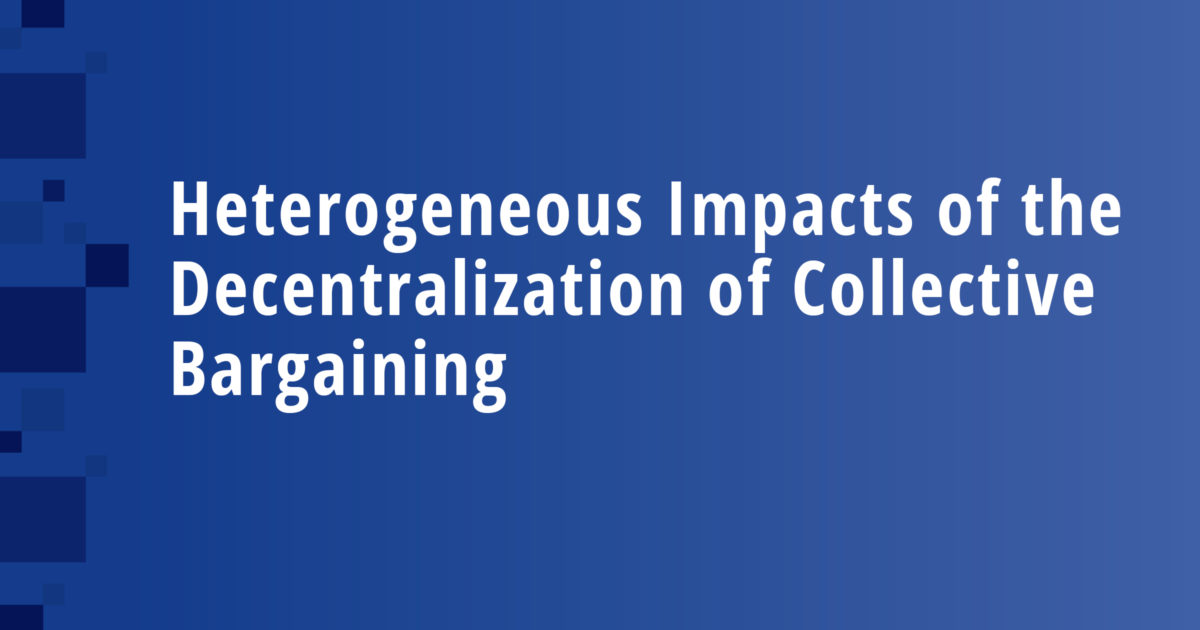
This paper analyses the heterogeneous effects of the decentralization of collective bargaining on the incidence of wage increases and wage dispersion in Finland. We use linked employer-employee panel data for the 2005–2013 period, which includes major changes in bargaining systems and economic conditions. Our regression results from models with high-dimensional individual and firm fixed effects show that decentralized bargaining leads to very different outcomes for blue- and white-collar employees. Decentralized bargaining decreases wage dispersion among blue-collar employees and slightly increases it among white-collar employees. Decentralization also affects the incidence of wage increases differently for blue- and white-collar employees. We argue that these differences reflect the different preferences of the employee groups. We also show that the fallback option in local negotiations affects the decentralization outcomes.